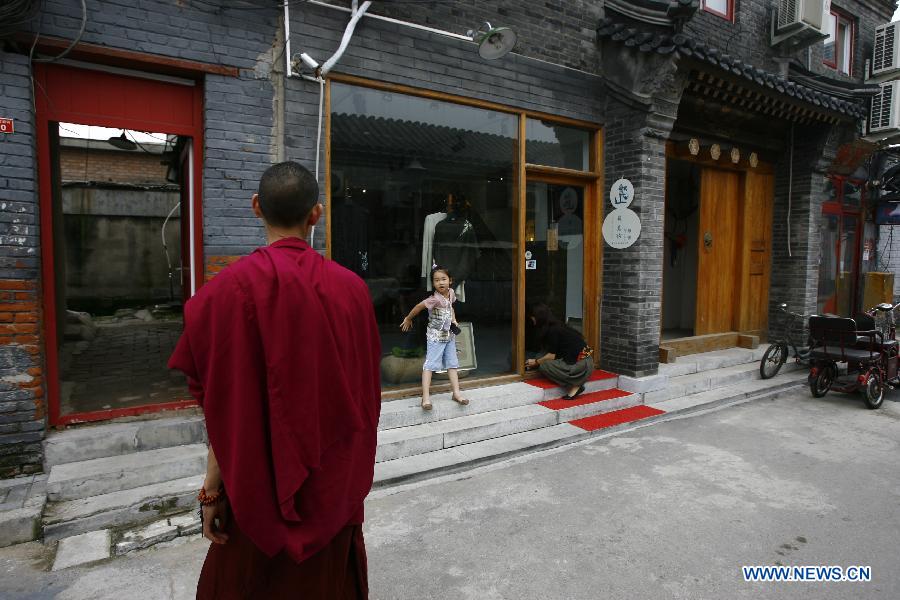Enjoy peaceful life in Wudaoying Hutong
 0 Comment(s)
0 Comment(s) Print
Print E-mail
Xinhua, September 26, 2011
E-mail
Xinhua, September 26, 2011
A little girl greets her Lama friend in front of her family's clothing shop in Wudaoying Hutong in Beijing, capital of China, Aug. 30, 2011. This is one of Beijing's oldest Hutongs, yet it is also the city's newest trendy hangout. Here are two tales of a Chinese Hutong--Wudaoying. The history of Wudaoying Hutong could date back to China's Ming Dynasty (1368-1644) when the garrison started to base and guard the city here. Over the last year and a half, Wudaoying near the Confucius Temple has gone through a profound transformation, establishing the alley as the city's unique gateway to see how it embraces multi-cultural blossom. Spanning for about 800 meters to the east of Beijing's Lama Temple, the renewed Wudaoying has a wide variety to offer, including Beijing's only fix-geared bike shop, a tanning studio, a Tibetan specialty store, several home decor shops, Beijing-style trinket shops, and of course, numerous tiny but stylish bars, cafes and tea houses. Business on the street began to strive in the latter of 2009 and early 2010. As more and more store owners from home and aboard moved in to initiate their ideas, many long-time local residents are now making an extra income by renting spare rooms, as a 20 square space has been reported to rent for about 5,000 Yuan (794 U.S. Dollars) per month, according to China Daily on Feb. 2011. Visitors can easily linger along the Hutong for a whole afternoon in warm Autumn sunshine, exploring all that its easy-going and merging cultures have to offer. The Hutong is by every means quiet and peaceful. The atmosphere is engaging but not pushy, as if all those little pieces of historical attractions are waiting there for wonderers to discover under the face of fashion and modernization. A "hutong" refers to a small alleyway surrounded by traditional Chinese courtyard homes. Having once dominated Beijing as a major residential form, Hutongs are now facing the challenge of staying integrated into the modern era. Wudaoying Hutong seems to present with an answer, at least for now. [Xinhua/Cui Xinyu]




